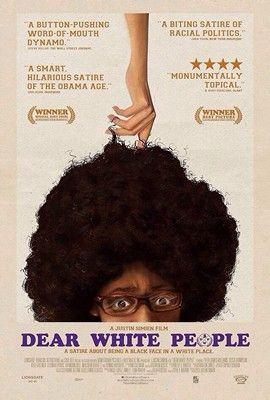If you were active on social media earlier this week, you may have noticed a new trending topic. #TokenTuesday is quickly becoming popular among racial minorities on Twitter and Instagram. Users tweet pictures and describe their experiences as the “token person” among mostly white friend groups, schools or communities.
The posts cover experiences of skin color being described as “exotic” or having people you don’t know ask to touch your hair because it’s not like theirs. These are experiences white-skinned people don’t have to put up with. While these incidents may not seem too bad, I can see how they’d quickly become annoying.
Many of these posts had the tag #DearWhitePeople, named after a film being released nationwide this weekend. Focusing on the black students at a traditionally white university, “Dear White People” delves into the often-unspoken effects of racial stereotypes, and it’s self-described as “a satire about being a black face in a white place.”
Two years ago, writer Justin Simien produced a concept trailer for his screenplay of “Dear White People.” The video quickly went viral, and financial contributions poured in, totalling $40,000 for the full-length film to be produced.
It’s safe to say that this is a movie that American minorities wanted to be made.
The topic of racial representation in the media is one that is met with a wide range of responses. While some say it’s up to the individual actors to succeed in the industry to have more diversity in movies, others criticize casting directors for lack of imagination.
After all, a mere suggestion in 2010 that black comedian Donald Glover play the role of Peter Parker in “The Amazing Spider-Man” fueled hateful messages insisting that Spider-Man could not be black. Glover expressed no one could imagine a teenage boy living with his aunt in Queens who likes photography and has black skin.
“Dear White People” showcases several young, black actors portraying the realities of being young, black Americans. From the preppy, overachieving male in a biracial relationship to a socially awkward gay character, the film allows us to imagine that skin color doesn’t take away diversity among the black community.
The events of this past summer have pushed racial issues to become a popular topic among Americans of all ages, races and backgrounds. This conversation, while often leaving us feeling uncomfortable or frustrated, has started a change.
Since its premiere at the Sundance Film Festival, the response to a film that blatantly calls out American racism has received mixed reviews. While some praise it for its tongue-in-cheek commentary, others say the film itself is racist against the white majority.
The subject of reverse- racism is touched on in the film, and an excellent explanation is given. A character explains that black people (or minorities in general) cannot be racist toward white people, because racism is not about personal prejudice or hatred. It is about the systemic disadvantage of a group of people because of their skin color.
While your experience seeing “Dear White People” may leave you feeling like there is a group people that’s angry or hateful toward you because you are white, remember that this message won’t follow you outside the theater. We face no stigma for having white skin, and we are certainly at no disadvantage on LSU’s campus.
While I am excitedly waiting for my chance to see this critically acclaimed film, especially as reviews from the limited release are being printed daily, I know that its message will be lost on many. There are people who are going to leave the theater feeling like they spent money to feel uncomfortable for two hours. The discomfort they feel is going to turn into a few angry reviews and social media posts claiming that the film is racist and the writer is merely profiting from black anger.
You should try your hardest not to be one of those people.
Seeing things from a different perspective is the first step toward recognizing an issue that may not be affecting you. In the case of black Americans, I have a feeling that “Dear White People” is the perfect opportunity for white America to finally see that just because we don’t see the harmful effects of our casual racism and racial stereotypes, doesn’t mean those effects don’t exist.
Jana King is a 20-year-old communication studies junior from Ponchatoula, Louisiana. You can reach her on Twitter @jking_TDR.
Opinion: ‘Dear White People’ calls out Hollywood’s inequalities
By Jana King
October 21, 2014

More to Discover










